Computational modeling of metabolic heterogeneity associated with drug resistance in tuberculosis
Faculty: Prof. Amit Singh (Microbiology & Cell Biology), Prof. Mohit Kumar Jolly (Bioengineering)
Phenotypic heterogeneity has been associated with resistance to various drugs in diverse biological systems, ranging from M. tuberculosis to cancer. For instance, M. tuberculosis can tolerate various antibiotics during infection, thus presenting a major challenge in tuberculosis management. The mechanisms of such variation remain poorly understood. Our previous work identified the role of redox-linked metabolic heterogeneity within Mtb populations inside macrophages. We discovered that acidic pH inside macrophages is one of the cues that generate a subpopulation of replicating bacteria displaying drug tolerance. However, how these different cell-states arise as an emergent outcome of underlying regulatory networks has not yet been analysed, thus limiting our ability to alter the patterns of metabolic heterogeneity in a population, eventually impacting patient outcomes. This project will focus on an integration of transcriptomic data (bulk and single-cell) with mechanism-based dynamical modelling to understand diverse feedback loops that can underlie the co-existence of different redox and metabolic states in an isogenic population. A better characterization of this regulatory map will help rank various possible perturbations to a heterogeneous population that can improve therapy efficacy, with the goal of achieving a relapse-free cure in tuberculosis.
Relevant references:
